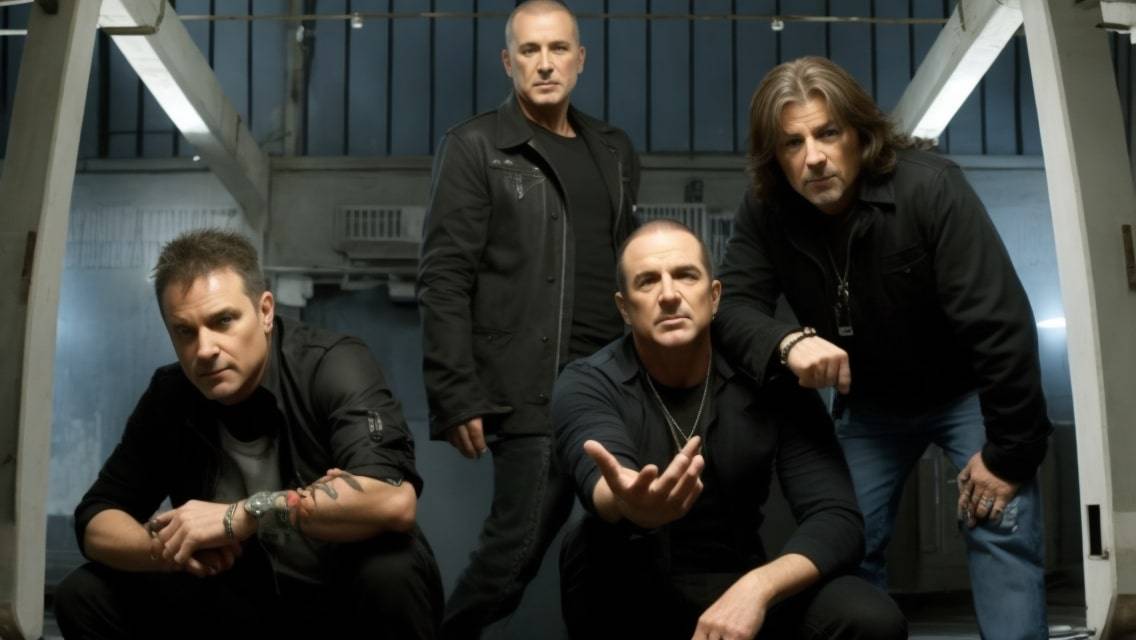Who were Creed and why were they so popular?
Creed was an American rock band that formed in 1995 in Tallahassee, Florida. The band consisted of lead vocalist Scott Stapp, guitarist Mark Tremonti, bassist Brian Marshall and drummer Scott Phillips. They rose to fame in the late 1990s and early 2000s with their debut album, My Own Prison, which sold over six million copies in the United States alone. Despite their success, the band was plagued by controversies and internal conflicts, leading to their eventual breakup in 2004.
The early years: How did Creed get started and what was their sound?
Creed was formed by Tremonti and Marshall, who had previously played together in a band called Naked Toddler. They recruited Stapp as their lead vocalist and Phillips as their drummer and began playing shows around Florida. Their sound was heavily influenced by grunge and post-grunge bands like Pearl Jam and Alice in Chains, with Stapp’s powerful vocals and introspective lyrics setting them apart from their peers.
The breakthrough album: What made My Own Prison so successful?
My Own Prison was released in 1997 and quickly became a commercial success, thanks in part to the hit single “My Own Prison.” The album’s dark, brooding sound and Stapp’s confessional lyrics resonated with audiences and the band’s intense live performances helped them build a dedicated fanbase.
The rise to fame: How did Creed become one of the biggest bands in the world?
Creed’s second album, Human Clay, was released in 1999 and cemented their status as one of the biggest bands in the world. The album featured the hit singles “Higher” and “With Arms Wide Open,” which won a Grammy Award for Best Rock Song. The band’s popularity continued to grow with the release of their third album, Weathered, in 2001, which debuted at number one on the Billboard 200 chart.
The controversies: What were some of the controversies surrounding the band?
Despite their success, Creed was plagued by controversies throughout their career. Stapp’s erratic behavior and struggles with addiction led to numerous public meltdowns and the band’s Christian faith and conservative political views alienated some fans. In addition, the band was accused of plagiarizing their music and lyrics, leading to lawsuits and public scrutiny.
The follow-up albums: Did Creed live up to the success of their debut album?
After the release of Weathered, Creed went on hiatus and the members pursued solo projects. They reunited in 2004 to record their fourth album, Full Circle, which received mixed reviews and failed to match the success of their earlier albums. The band announced their breakup later that year.
The aftermath: What did the members of Creed do after the band’s breakup?
After the breakup, Tremonti and Phillips formed the band Alter Bridge, while Stapp pursued a solo career. Marshall briefly joined the band Tremonti before leaving to focus on his family.
The reunion: Why did Creed decide to reunite in 2009?
In 2009, Creed announced that they were reuniting for a tour and a new album, Full Circle. The band cited a desire to reconnect with their fans and make music together again as the reason for their reunion.
The comeback album: How did Full Circle compare to Creed’s earlier albums?
Full Circle received mixed reviews from critics, with some praising the band’s return to their roots and others criticizing the album for being formulaic and uninspired. Despite the mixed reception, the album debuted at number two on the Billboard 200 chart.
The legacy: What is Creed’s lasting impact on the music industry?
Creed’s legacy is a complicated one. On one hand, they were one of the biggest bands of the late 1990s and early 2000s and their influence can be heard in the music of many post-grunge and alternative rock bands that followed. On the other hand, their controversies and internal conflicts have overshadowed their music in many ways and their reputation has suffered as a result.
Conclusion: Was Creed’s rise and fall inevitable, or could things have turned out differently?
It’s hard to say whether Creed’s rise and fall was inevitable or not. On one hand, their success was built on a sound and style that was popular at the time and their controversies and internal conflicts were always going to be a liability. On the other hand, the band’s talent and dedication to their craft cannot be denied and it’s possible that with better management and a more stable lineup, they could have continued to make great music and maintain their popularity. Ultimately, though, the legacy of Creed will always be a complicated one, with their music and their controversies both playing a role in how they are remembered.





